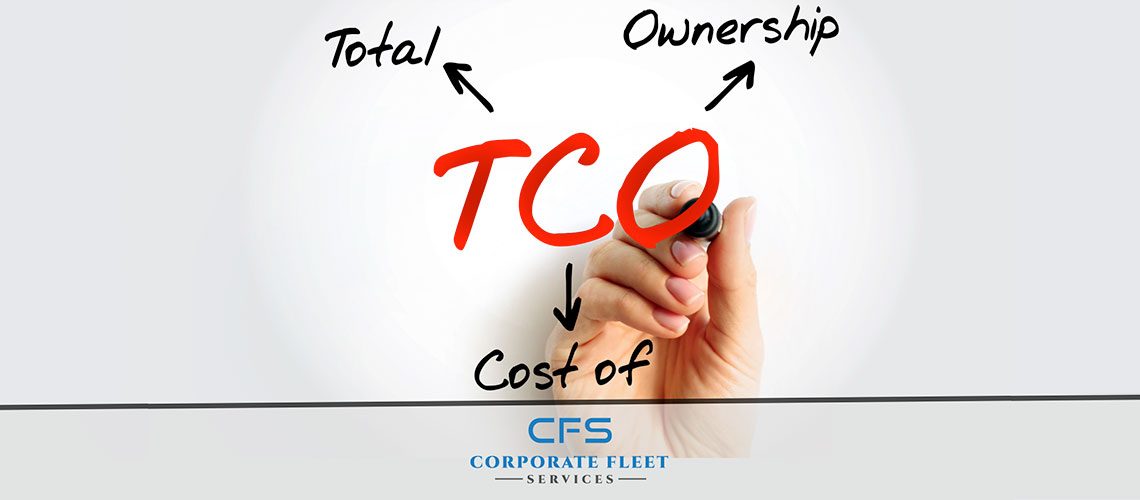Delve into the comprehensive concept of the total cost of ownership (TCO), encompassing all costs associated with fleet ownership, to make informed financial decisions.
In the intricate realm of vehicle fleet management, the pursuit of financial prudence and operational efficiency requires a perspective that goes beyond surface-level costs. Enter the concept of Total Cost of Ownership (TCO) – a comprehensive framework that unveils the true economic impact of fleet ownership. Delving beyond the visible expenses, TCO takes into account all facets of fleet management, helping fleet managers make informed financial decisions that align with organizational goals. In this article, we embark on a journey to explore the intricate concept of TCO, unraveling hidden expenses and shedding light on the path toward better budgeting.
The TCO Paradigm
Total Cost of Ownership represents a shift from the narrow view of upfront expenses to a holistic understanding of the entire lifecycle of fleet vehicles. TCO takes into consideration direct and indirect costs, anticipated and unforeseen expenditures, and the broader implications of fleet ownership on an organization’s financial landscape.
The Components of TCO
The TCO equation extends far beyond the purchase price of a vehicle. It encompasses a spectrum of elements that influence the bottom line:
- Acquisition Costs: This includes the purchase price, taxes, and any associated fees.
- Fuel Costs: One of the most significant ongoing expenses, fuel costs are influenced by vehicle efficiency, driving behavior, and market fluctuations.
- Maintenance and Repairs: Routine maintenance, unexpected repairs, and the overall health of the fleet impact operational costs.
- Depreciation: The decrease in vehicle value over time impacts resale value and future costs.
- Financing Expenses: Interest on loans or leases adds to the overall cost of ownership.
- Insurance Premiums: Insurance costs are a recurring expense that varies depending on factors like vehicle type, usage, and coverage.
- Licensing and Registration: Registration fees, licensing, and compliance costs are essential considerations.
- Resale Value: The residual value of vehicles impacts future budgeting and decisions regarding fleet turnover.
- Downtime and Productivity Loss: Vehicle breakdowns and associated downtime can lead to lost productivity and revenue.
- Environmental and Regulatory Compliance: Meeting environmental and regulatory standards may incur costs for technology upgrades or modifications.
- Administrative Costs: Administrative tasks such as record-keeping, reporting, and compliance management contribute to the TCO.
Calculating TCO for Informed Decisions
Calculating TCO involves meticulous analysis and accurate data collection:
- Gather Data: Collect data on all expenses related to fleet ownership, from acquisition to disposal.
- Determine Lifecycle: Calculate the expected lifespan of vehicles in your fleet.
- Quantify Costs: Quantify each cost element over the anticipated lifecycle.
- Calculate Present Value: Adjust future expenses to present value to account for inflation and interest rates.
- Evaluate Alternatives: Compare TCO across different vehicle models, maintenance practices, and technology solutions.
- Monitor Actual Costs: Regularly track and update TCO calculations to ensure accuracy.
Informed Budgeting and Decision-Making
The benefits of calculating TCO extend far beyond numerical insights:
- Informed Financial Decisions: Armed with a comprehensive view of costs, fleet managers can make strategic financial decisions that align with long-term goals.
- Accurate Budgeting: Accurate TCO calculations provide a clear picture of operational costs, enabling precise budgeting and resource allocation.
- Effective Vehicle Selection: TCO analysis aids in selecting vehicles with the best long-term financial impact.
- Optimization of Maintenance: Understanding the cost implications of maintenance decisions enables efficient maintenance planning.
- Resale Strategy: Knowledge of depreciation rates assists in devising resale strategies that maximize return on investment.
- Risk Management: Anticipating potential risks, such as breakdowns or regulatory non-compliance, enables proactive risk management.
Strategic Foresight for Operational Excellence
The concept of TCO epitomizes strategic foresight in fleet management. By peeling back the layers of ownership costs and revealing hidden expenses, TCO empowers fleet managers to make decisions that resonate with financial stability and operational excellence. As fleet managers embrace TCO analysis, they embark on a journey of precision budgeting, optimal decision-making, and a future where fleet ownership is not just a cost, but a calculated investment in success.

